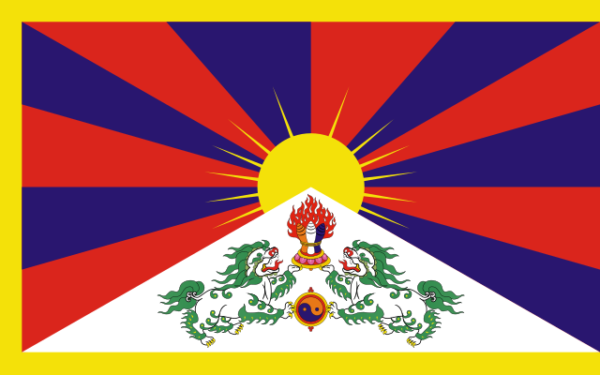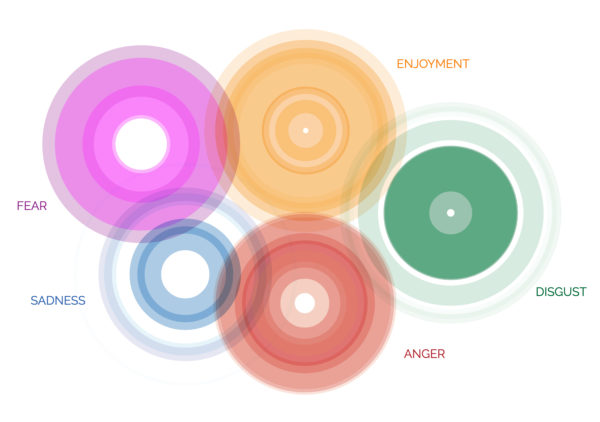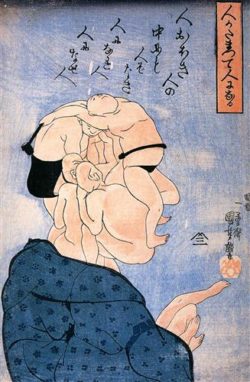Begin door drie keer adem te halen en richt je aandacht simpelweg op je ademhaling.
Wees je er gewoon van bewust dat je inademt, uitademt, weer inademt, uitademt – driemaal.
Dan begin je met de meditatie.
steunbetuiging Tibet
De toekomst van Tibet, het voortbestaan van het Tibetaanse volk en het overleven van zijn cultuur [en de Tibetaanse natuur; noot zentrifuge] worden ernstig bedreigd. Het Chinese beleid zorgt voor een zorgwekkende vernietiging van de Tibetaanse cultuur, taal en religie.
Er is op de site van International Campaign for Tibet de mogelijkheid om een steunbetuiging aan de Dalai Lama te tekenen.
De Dalai Lama ziet instandhouding van de Tibetaanse cultuur als zijn persoonlijke verplichting. Een kostbare cultuur gebaseerd op wijsheid en mededogen, die appelleert aan wat wij missen in de huidige wereld en die wij moeten beschermen. Niet alleen voor het Tibetaanse volk, maar ook voor onszelf en de toekomst.
atlas van onze emoties (incl. strategieën om met ze om te gaan)
The Atlas of Emotion was commissioned by the Dalai Lama, his purpose is “ In order to find the new world we needed a map, and in order for us to find a calm mind we need a map of our emotions”. The simple, but not easy, goal of this Atlas is to help us be aware of our emotions. Awareness of our emotions means understanding how they are triggered, what they feel like and how we respond. Awareness itself is a strategy, it helps us understand our emotion experiences. We do not want to get rid of our emotions, we want strategies that help us respond in helpful, constructive ways.
The Dalai Lama imagined “a map of our emotions to develop a calm mind.” He asked his longtime friend and renowned emotion scientist Dr. Paul Ekman to realize his idea. Ekman took on the creation of the Atlas alongside his daughter, Eve Ekman, a second-generation emotion researcher and trainer. The Atlas represents what researchers have learned from the psychological study of emotion. – atlasofemotions.org
Please click here to visit the atlas
dalai lama: de voordelen van een kalme geest
Real obstacles or destoyers of Calm Mind are fear, suspicion, hatred, anger, greed. These emotions are the opposite of a calm mind. Calm mind sees things more clearly, more realisticly and more holistically.
More self confidence means less fear; if we have a more objective mental attitude we feel less greed, we feel more content.
How to develop self-confidence, or inner strength: once we have developed a compassionate or altruistic attitude then there’s no basis for fear.
Tenzin Gyatso – 14th (current) Dalai Lama
Buddhist Film Festival Europe @EYE Amsterdam: 29 september-1 oktober 2017
‘The theme of the Buddhist Film Festival Europe 2017 is ‘Being human.’
This year for the twelfth time the EYE in Amsterdam will be the heart of our being together for spiritual, international films during the Buddhist Film Festival Europe! A unique and well-attended event for meeting new friends, cinema lovers and wisdom seekers, centered on buddhist values, such as non-violence, interdependence, and Mindfulness, with the aim to contribute to a compassionate society.
On Friday evening September 29 at 19:00 the festival will open with the new documentary The Last Dalai Lama? (by Mickey Lemle), a very intimate portrait of the now 82 year old Dalai Lama. In addition to films from various Asian countries, there will be productions focussing on the science of mind, and films with a socially engaged theme that empower holistic perspectives.
Not to miss is the special event on Sunday afternoon October 1, presented by Mind & Life Europe, with a unique contemplative science program and a panel meeting. The full festival program will be available online beginning of September at www.bffe.eu and ticket sales will start on September 8 at www.eyefilm.nl.’ – BFFE.eu
zijn we van nature zelfzuchtig of mededogend?
“De vruchten van het boeddhistische pad en de kenmerken van bevrijding zijn: wijsheid en mededogen. Ze horen bij elkaar als warmte bij vuur hoort. Mededogen is de vanzelfsprekende verwerkelijking van wijsheid.
In een dialoog met de Dalai Lama bracht een westers filosoof* het debat op gang omtrent de vraag of de mens van nature zelfzuchtig (selfish) of mededogend (compassionate) is. Dit veroorzaakte bij de Tibetaanse vertalers een verhitte discussie. Het Tibetaanse woord voor ‘compassion’ bleek zowel zichzelf als de ander in te sluiten. De Dalai Lama was heel verwonderd dat het Engels daar geen woord voor had. In het Nederlands is het nog erger gesteld. (meer…)


